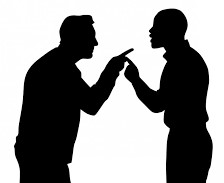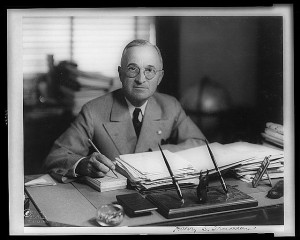[Among the most viewed of the nearly 400 short essays posted on The Perfect Response is this from 2014, suggesting that there are sometimes advantages to not replying to another’s rebuke. We assume every arrow aimed at us needs a quick counter-response. But the psychological rewards of angry replies can be overrated. As noted here, even a brilliant retort is not likely to force an errant advocate back on their heels.]
For many of us the urge to enter the fray to correct or admonish others is a constant. It is always tempting to think that we are being helpful when we explain to the misguided how they have failed to notice their mistakes. It’s a self-fulfilling process. If others offer corrections or criticisms of our ideas, the least we can do is return the favor.
Aristotle was one of the first to formally describe how a person should defend their ideas when challenged. He equated the ability to make counterarguments to the realm of sometimes necessary personal defense. Though the great philosopher used other words, he essentially noted that we shouldn’t allow ourselves to be pushed around; our arguments should strike back. This was about 380 B.C., demonstrating that some things never change.
 Even so, it has perhaps become too easy to fire off a rejoinder or a personal attack. Most of us find it hard to be in a public space and not encounter cross-court slams from an ideological opponent that need an equally aggressive return.
Even so, it has perhaps become too easy to fire off a rejoinder or a personal attack. Most of us find it hard to be in a public space and not encounter cross-court slams from an ideological opponent that need an equally aggressive return.
The digital world easily brings this kind of escalating indignation to the fore. Many websites make the mistake of accepting comments that are protected by anonymity. Are we surprised that they are often rude? And it isn’t just the trolls that are rattling on about a writer’s sloppy logic or uncertain parentage. In private and public settings everyone seems to be ready with a hastily assembled attitude. The felicitous put-down is so common that screenplays would wilt in their absence. What dramatist could write a scene about a family Thanksgiving dinner without including at least a couple of estranged relatives rising to the bait of each other’s festering resentments? To add to the fray, some of us get paid to teach others how to argue, with special rewards going to those who are especially adept at incisive cross examination.
Sometimes saying nothing is better than any other alternative: less wounding and hurtful, and the best option in the presence of a communication partner who is out for the sport of a take-down. In addition, the psychological rewards of verbal counterpunches can be overrated. Even a brilliant rejoinder is not likely to force an errant advocate back on their heels. You may be itching to set the record straight in no uncertain terms. But they are probably just as determined to ignore you.

And there are costs to becoming shrill. Harry Truman famously sensed this. The former President had a hot temper. Even before he came to office in 1945, he had more than his share of critics. But his approach to doubters made a lot of sense. In the days when letters often carried a person’s most considered rebuttals, his habit was to go ahead and write to his critics, often in words that burned with righteous indignation. But he usually didn’t mail them. The letters simply went into a drawer, which somehow gave Truman the permission to move on to more constructive activities, such as a good game of poker.
Not responding to someone else’s provocative words has several advantages. One is that your comments probably won’t be received anyway. It is our nature to ignore non-congruent information, a process known in the social sciences as “confirmation bias,” but familiar to everyone who has ever said that “we hear only what we want to hear.” Another advantage is that rapid and heated responses to others can carry the impression that the responder lacks a certain grace. Not every idea that comes into our heads is worth sharing. And fiery replies sometimes indicate that we weren’t really listening: a result when disgust or hate drains away our capacity for clear-headed thinking.
Time gives us a better perspective. It allows us to better anticipate how our responses will be judged. Most importantly, it helps us break the spiral of wounding responses that pile on top of each other.
![]()
